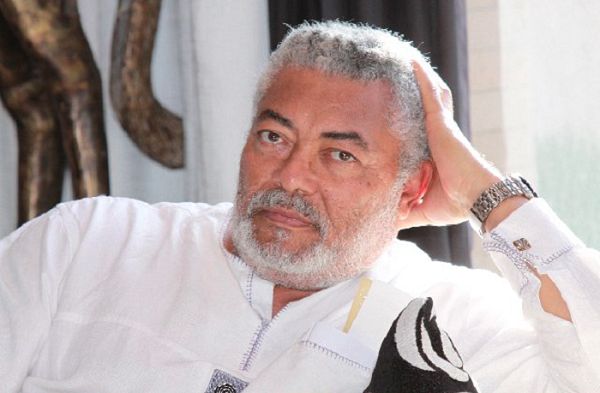
Why are we so hypocritical in our politics?
It should cease by now my amazement when so-called knowledgeable Ghanaians proffer versions of our past which defy rational comprehension.
The week in which the important date of June 4 fell this year has been a bumper harvest for these hypocrisies to flourish and poison the atmosphere.
Advertisement
Of course, 1979 is 40 long years away and the diminishing numbers of Ghanaians who lived in those times must be stupefied by how others recount events.
I am one of them. June 4, 1979 was only three days away from the day I finished my secondary education and I was very much aware of my surroundings.
The importance of the past cannot be overstated but the interpretation given to events can easily confound and confuse.
You wonder if this is not deliberate to achieve a present or future purpose we ordinarily would not agree with.
Nobody, for example, can persuade me today that these matters are more important than the sad unsolved cases of the Takoradi girls and the long list of other pressing present cases.
Distraction?
Perhaps this is the real intent of the purveyors and promoters of such stories about our past: to take away our attention from very current unsolved problems and get us arguing uselessly about the unrecoverable past. This can easily be made plain by asking fundamental questions about the debatable versions we are being fed with.
All the people mentioned as victims and winners of our politics 40 years ago are a direct product of military coups in our history.
Which coup do you glorify or damnify to the exclusion of others. Why? This is the apex of the matter.
The current attempt to rewrite our history throws up interesting unanswerable but very valid questions which the purveyors avoid.
And emotive claims about death and sadness are roped in to make us overlook the real facts of our past.
Soldiers in politics in our history is a fact.
Indeed the ruling party of President Akufo-Addo was resurrected only after the 1966 coup.
President Nkrumah had had the historical party banned in a referendum in 1964.
It was the soldiers whose coup reversed this act of Parliament.
Now, declaration of a one-party State is unconstitutional courtesy of a military overthrow of Nkrumah in 1966.
Are these not facts of our history?
Therefore, the attempt to damn all coups as undemocratic is unworthy of critical, balanced minds.
We have one country and it is dangerous to pit us against one another on the basis of things which have been liberally indulged in by both sides with catastrophic results depending on one’s political outlook.
This is quite apart from the obvious fact that other countries have achieved what we want to achieve by undemocratic means.
But let us leave that for another day.
Indemnity clauses
I am fully aware that the impossibility of shutting up former President Rawlings from saying unpalatable things to some of us is a large part of the fascination of distorting our history to damnify him and what he stands for in our history.
But that is in most cases a reflection of our deep-seated intolerance because no matter what he says, President Rawlings has served his bit, done his time and there is no chance he would ever be the final arbiter on how to use our taxes.
His views on the indemnity clauses are basically fanciful but very emotive.
The clauses become irrelevant and moot when the last appointee or operative of those regimes die.
The most important fact which should gauge reaction to his testy politics is that though he inspired June 4, he himself was a stranger to the events of the day 40 years ago for the simple reason he was in custody undergoing trial.
Ghanaian soldiers and civilians were fired up by what he was made to represent; probity and accountability.
It was the mass of our people who made him relevant to today.
This is important because mass politics needs the masses to flourish.
Are we condemning Ghanaians of 40 years ago who experienced what made President Rawlings relevant?
What intrigues me most is that the condemnation of June 4 by New Patriotic Party members is direct legitimisation of the 1972 coup that ousted the Busia regime whose beneficiaries were the victims of June 4.
Interesting interpretive dimensions are provoked and promoted by this interpretation which are valid.
We should cease chewing the cud because we are humans not ruminants.
Is that the end game of these ridiculous and malicious versions?
That good Progress Party men and women backed the Acheampong coup that overthrew their leader?
Rumours
Last week I listened to a BBC feature on the assassination of the last Russian tsar Nicholas and his entire family in July 1918.
The discussion was about a rumour spread by the communists that British Intelligence killed them because a gun found at the site belonged to a British operative in Russia around the period during the First World War.
Why the British royal family would be interested in killing their Russian relatives was left unasked and unanswered.
Soviet communism crashed into the dustbin of history 70 years later. What was the relevance of this plain lie?
We must spend our time questioning current leadership on what they are chosen to do today, to improve and change our present and the future for the better.
We did not vote for lessons in revised history. We cannot spend our precious energies haggling over things which cannot free the Takoradi girls, repress creeping insecurity, reduce skyrocketing fuel and gas prices and the host of other issues which plague us.
It would seem the fascination with ancient history is the preferred method for some of us not to hold our current leaders accountable.
It is short-sighted, unhistorical and ultimately useless.
Writer’s E-mail: [email protected]



